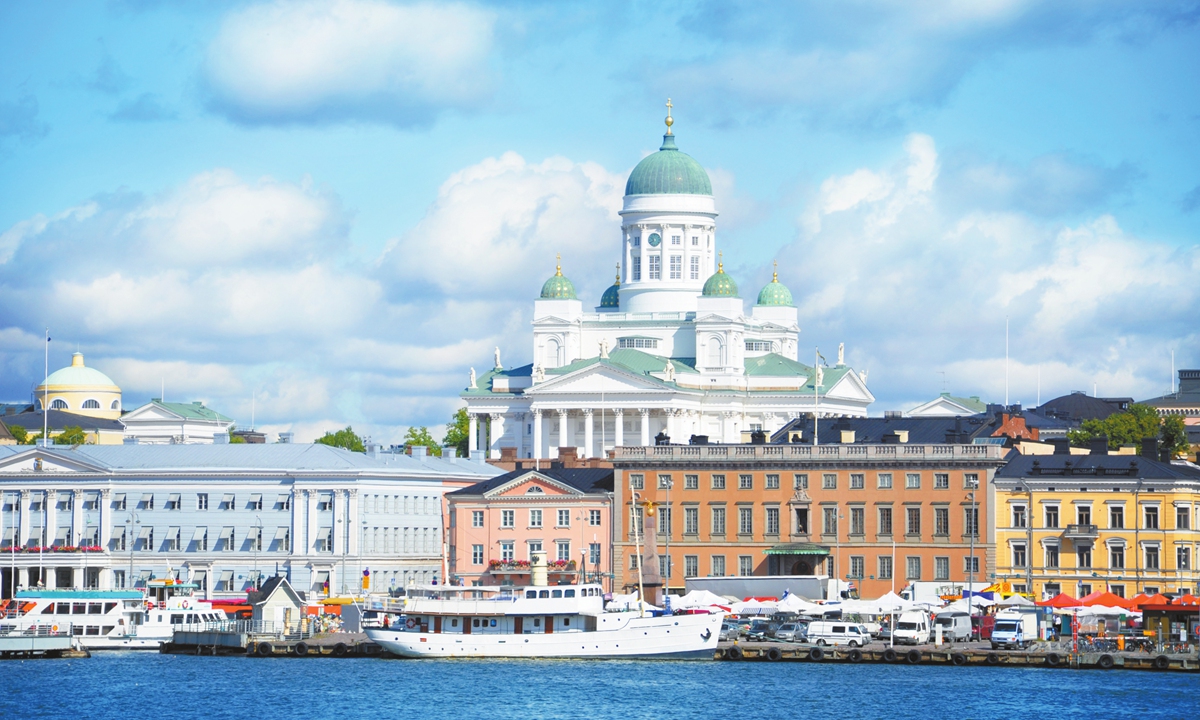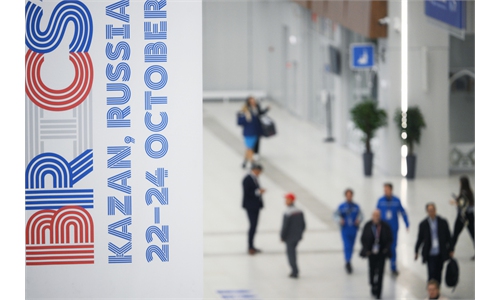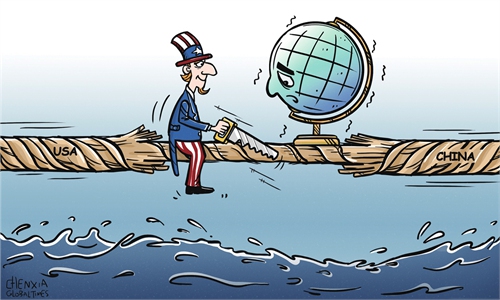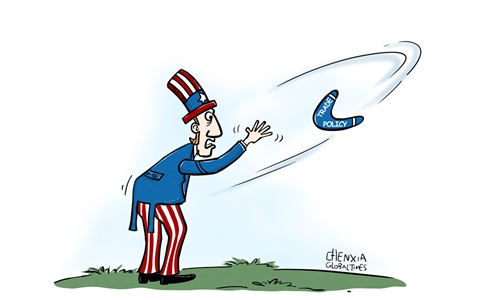Common interests of China-Europe can help overcome challenges: former Finnish prime minister

A view of Helsinki. Photo: VCG
Editor's Note:
Finnish President Alexander Stubb is making his first state visit to China from Monday to Thursday. The relationship between China and Finland is growing with a sound momentum with China having become Finland's third-largest trading partner. Global Times (GT) reporter Qian Jiayin interviewed Esko Aho (Aho), CEO of Verbatum Oy and former prime minister of Finland, to discuss how China-Finland collaboration may further develop in the face of challenges in China-Europe economic and trade cooperation.
GT: What are your expectations for President Stubb's trip? In your view, what issues are currently of greatest concern to both countries in the context of China-Finland relations?
Aho: It is very important for the heads of state of Finland and China to meet, especially during this time of great global instability. Therefore, I think it's crucial for Finland and China to exchange views and discuss next steps in our collaboration. Following Finland's accession to NATO, and as we will start the next mandate period of the European Commission, I think now is the time to discuss major global challenges, especially security challenges, and how best to respond for the benefit of both nations.
In terms of special content, climate change and sustainability are areas where both Finland and China are global leaders, offering many common interests and opportunities to learn from each other's experiences. Also, I assume that we have options and opportunities to invest in the green transition in a way that allows us to reach our targets faster, which is very critical for the future of mankind.
GT: The China-Finland Governmental Trade Agreement has been in effect for 71 years, and in 2022 China became Finland's third-largest trading partner. How do you evaluate the development of China-Finland economic and trade cooperation over the past decades? Which areas do you see as having potential for further development?
Aho: First, I believe that trade and economic collaboration has been an essential element in the relationship between Finland and China. Since the early 1950s, it is no surprise that we began to work systematically on trade and economic relations shortly after establishing diplomatic ties. We can learn a great deal from each other, as Finland is advanced in certain sectors of the economy, such as engineering, technology and renewable energy, while China has achieved significant successes in other areas. This creates strong opportunities for mutually beneficial collaboration.
I hope we can encourage Chinese consumers to explore some of Finland's best exports in the future. Regarding the role of Chinese companies in Finland, I see opportunities for investments and joint ventures that can bring Chinese expertise to the European Union in ways that align with and promote fair competition.
The green transition represents perhaps the greatest potential we have. This transition encompasses many technological sectors, making it a broad and important agenda. I believe there are opportunities for Chinese investments in Finland. One area of focus is battery technology, which is crucial for the electrification of transportation in Europe, not just in Finland but across the continent. China is very advanced in this field, so I see specific sectors where investments could be feasible.
GT: You frequently visit China and attended the Boao Forum for Asia Annual Conference in March this year. How do you view China's development and its economic outlook? What impact has China's development had on Europe?
Aho: Looking back over the past 45 years, China has achieved remarkable successes in its economy since the implementation of opening-up and reform policies that began in the late 1970s. These policies have had a profound impact not only on China but also on the global economy and the international community as a whole.
Currently, the global economic situation is quite complex, shaped by challenging geopolitical developments such as the war in Ukraine and escalating tensions in the Middle East, both of which negatively affect the global economic outlook. Even in these circumstances, I believe it's very important that we can still keep global trade growing. It's important to have collaboration in many fields.
Regarding recent developments in China, we have been closely monitoring the new economic policies and decisions being implemented. It is vital for the global community that these incentives and policy efforts succeed in stimulating growth in China.
GT: Despite the EU's approach to "de-risking," how can Europe and China maintain the normal aspects of their relationship and deal with challenges?
Aho: I am confident that we can find pathways for collaboration between the EU and China. Despite the existing tensions and challenges, we can still guarantee that fair competition rules are upheld and that all sectors operate on an equal footing. We must consider the broader picture: Europe is dependent on China, and China is similarly dependent on the EU. This interdependence creates a common interest in minimizing the negative impacts on our trade relations. I hope to remain involved in this process, and I sincerely hope that the EU and China can find effective ways to resolve the issues at hand. While challenges persist, I believe there is a mutual interest on both sides to address and overcome them.
GT: You once stated that "Trade is the best method to promote peace." However, the rise of trade protectionism is a growing concern. How do you think this trend will affect the global economy and security situation?
Aho: Reflecting on history, the International Chamber of Commerce was established after World War I with the fundamental idea of promoting open international trade and investment systems that foster peace, prosperity and opportunity for all. There are compelling reasons to believe that lower trade restrictions contribute to a more stable and secure global environment. Conversely, when protectionism takes hold and limits are imposed, it negatively impacts global security and cooperation. Historically, this provides strong motivation to assert that trade is one of the best methods to foster peace.
In the 1990s, following the end of the Cold War, we may have been overly optimistic, assuming that everything would proceed smoothly. Yet, we now recognize that global tensions persist. Countries are increasingly focused on identifying their strategic areas and interests, which is a natural response. Nonetheless, it is crucial to limit these protectionist measures as much as possible to promote a more cooperative international environment.
GT: What insights do you think the China-Finland relationship offers for the broader China-Europe relations?
Aho: I believe it is crucial to maintain dialogue, as both China and Finland can play significant roles in seeking sustainable solutions to the challenges we face.
Looking at the long-term relationship between China and Finland, it is important to recognize that we are confronted with many similar challenges. As we've discussed, the green transition and environmental issues are high on the agendas of both nations. Additionally, the aging population presents a significant challenge. Finland has already begun to feel the effects of this, and based on demographic data, China will also face considerable issues in the long term due to its declining birth rate and low fertility rates.
I am not convinced that fiscal and financial measures alone will lead to a significant increase in birth rates. While they may have some impact, the results will likely be limited. We must prepare to develop a "silver economy," which, for me, means adjusting our economies and technological development processes to adapt to an older population. This is an area where Finland and China can collaborate effectively, ensuring both nations can thrive in the future despite demographic changes.



